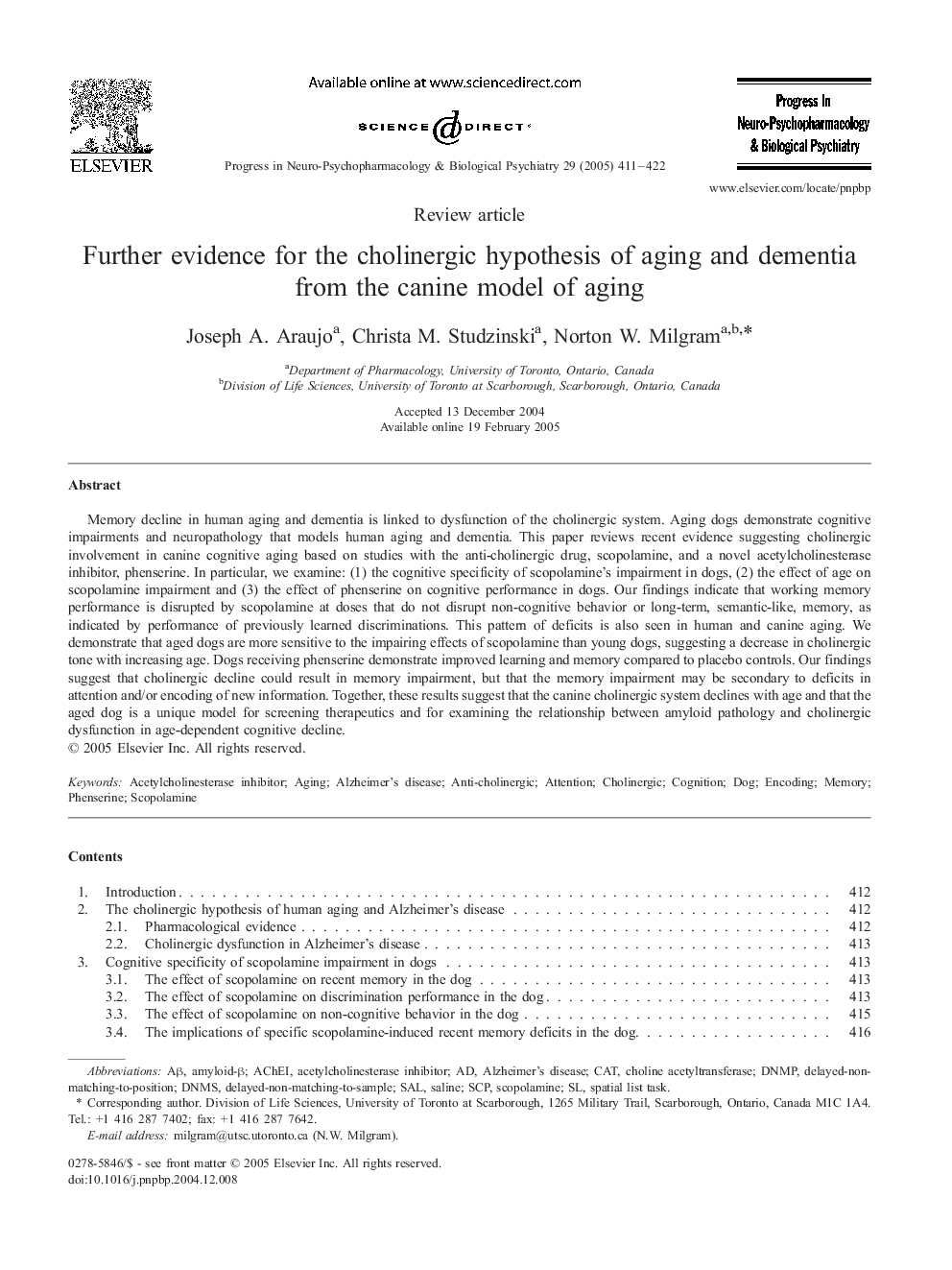| Article ID | Journal | Published Year | Pages | File Type |
|---|---|---|---|---|
| 9016345 | Progress in Neuro-Psychopharmacology and Biological Psychiatry | 2005 | 12 Pages |
Abstract
Memory decline in human aging and dementia is linked to dysfunction of the cholinergic system. Aging dogs demonstrate cognitive impairments and neuropathology that models human aging and dementia. This paper reviews recent evidence suggesting cholinergic involvement in canine cognitive aging based on studies with the anti-cholinergic drug, scopolamine, and a novel acetylcholinesterase inhibitor, phenserine. In particular, we examine: (1) the cognitive specificity of scopolamine's impairment in dogs, (2) the effect of age on scopolamine impairment and (3) the effect of phenserine on cognitive performance in dogs. Our findings indicate that working memory performance is disrupted by scopolamine at doses that do not disrupt non-cognitive behavior or long-term, semantic-like, memory, as indicated by performance of previously learned discriminations. This pattern of deficits is also seen in human and canine aging. We demonstrate that aged dogs are more sensitive to the impairing effects of scopolamine than young dogs, suggesting a decrease in cholinergic tone with increasing age. Dogs receiving phenserine demonstrate improved learning and memory compared to placebo controls. Our findings suggest that cholinergic decline could result in memory impairment, but that the memory impairment may be secondary to deficits in attention and/or encoding of new information. Together, these results suggest that the canine cholinergic system declines with age and that the aged dog is a unique model for screening therapeutics and for examining the relationship between amyloid pathology and cholinergic dysfunction in age-dependent cognitive decline.
Keywords
Related Topics
Life Sciences
Neuroscience
Biological Psychiatry
Authors
Joseph A. Araujo, Christa M. Studzinski, Norton W. Milgram,
